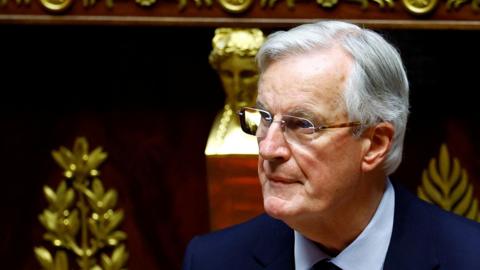French PM risks no confidence vote after forcing through budget

France has been beset by political uncertainty since President Macron called snap elections over the summer which resulted in a hung parliament where no party had an absolute majority.
A left-wing alliance won most seats, and the conservative Barnier - appointed by Macron to bring stability to the French government - has faced the constant threat of a vote that could force him out.
While Barnier had made last-minute concessions to the social security funding bill - which sought to rein in France's spiralling deficit - his efforts were insufficient to get it over the line.
Certain that the National Assembly would reject the bill, Barnier used executive powers under article 49.3 of the French constitution to force it through.
"I don't think French people will forgive us for choosing party interests over the future of the country," Barnier told MPs on Tuesday as he explained the reasons for his decision. "Now, everybody will need to assume their own responsibility as I have assumed mine."
Almost immediately, the left wing opposition party France Unbowed (LFI) and Marine Le Pen's far-right National Rally (RN) said they would table no-confidence votes.
Le Pen told reporters in parliament that "the French have had enough".
The budget bill sought to deliver €60bn (£49bn) in tax rises and spending cuts.
But Barnier was forced to cave to changes demanded by critics due to his lack of a parliamentary majority.
These included scrapping a previously planned hike in electricity tax, as well as plans for a less generous prescription drug reimbursement policy from next year.
The new version remained unacceptable to the opposition, with the RN joining the left in opposing it.
